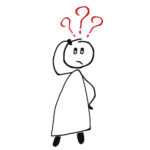
On the issue of the transfer of assets upon death, Pennsylvania answered, TAX THEM!, in the form of the Pennsylvania Inheritance Tax, which taxes assets owned by a Pennsylvania resident at death. This includes things you might not think would be subject to the inheritance tax. So what assets exactly does the state assess tax?
The simple answer is everything but life insurance and some pension plans.
This means all real estate and tangible personal property (your “stuff”), including cash, automobiles, furniture, antiques, jewelry, and such located in Pennsylvania. It also includes all intangible property, regardless of its location, including stocks, bonds, savings bonds, bank accounts, and money owed to the deceased person. This includes accounts held jointly with someone other than a spouse (although only the percentage owned by the deceased person is taxed – e.g. if 2 people are joint owners, 50% would be taxed; if 3 people, 33% would be taxed, etc.), and accounts with designated beneficiaries, or marked as payable on death or transfer on death.
So that checking account in Florida is subject to Pennsylvania inheritance tax, as is that stock account with the broker in Colorado. The 401k account on which mom named you the beneficiary – yes, subject to inheritance tax if she was over 59 ½ years old on her date of death. Surely the annuity account isn’t subject to tax?
Unfortunately it is. What about dad’s trust? Yes, the trust too is subject to inheritance tax. But these items go directly to me, how can that be? But we didn’t open an estate with the Court, so there shouldn’t be any tax. The inheritance tax is based on the nature of the asset, not the nature of ownership, so even if your deceased loved one did not own anything in his or her own name, or named a beneficiary for some assets, the assets are all still subject to the tax, even though you may not need to open an estate. Some assets, those held solely in the name of the decedent, require an estate to be opened with the Court, commonly called probate, that has no bearing what is taxable. Pennsylvania equally assesses inheritance tax on both probate and non-probate assets.
The rate of tax you pay is dependent upon your relationship to the decedent. Spouse are assessed tax at the rate of 0%. Notice I didn’t say spouses aren’t taxed. For direct lineal descendants (children, parents, grandparents etc.) the current rate is 4.5%, for siblings 12%, and for everyone else 15%. Charities, exempt institutions, and certain government entities are exempt from tax.
There is some “good news”, though. First, anything a married couple owned together as spouses is not subject to tax, because it becomes the sole property of the surviving spouse upon the instant of the death of the other spouse. Second, the inheritance tax isn’t assessed on the gross estate, but on the net estate. Pennsylvania does allow some deductions to reduce the amount of tax, such as: unpaid expenses incurred by or for the decedent prior to death, such as medical bills, credit card bills, utilities, and such; and costs incurred for administration of the estate, such as Court costs, attorney fees, executor fees, funeral and burial expenses (including those flowers and that post-funeral luncheon), and carrying costs for real estate that will be sold. Because the inheritance tax is paid on the net estate, the deductions help to lower the tax. Pennsylvania’s flat tax rate assures that the tax is paid at the same rate on the first dollar of the net estate as it is on the last dollar.
So while there is some planning that you can do to avoid probate (the need to present the Will to the Court and have an executor sworn in to transact the estate’s business), there is no way to avoid inheritance tax – you can’t even take it with you! Click here and RSVP for one of our upcoming FREE workshops an we’ll tell you all you need to know!
Tammy Ely


